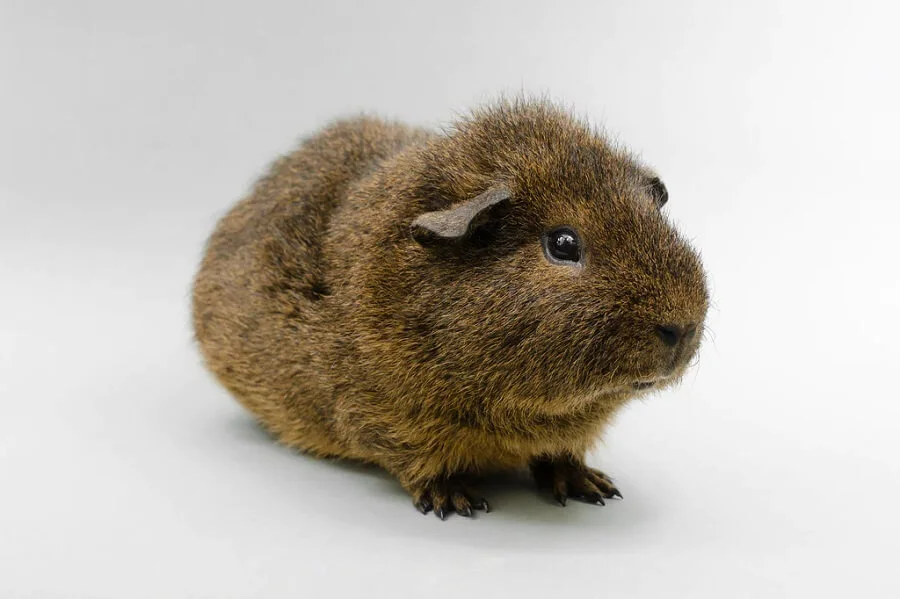The Rex Guinea Pig, with its distinct and charming features, is a beloved breed among enthusiasts. Known for its larger size, friendly demeanor, and unique coat, the Rex Guinea Pig is a wonderful pet, offering a balance of playfulness and affection.
Origins and Distinctive Features
The Rex Guinea Pig stands out with its dense, curly coat and its name “Rex,” meaning “King” or “Ruler” in Latin, aptly reflecting its larger stature compared to other guinea pig breeds. Unlike the Teddy Guinea Pig, which has a softer coat, the Rex’s coat is coarser, with its fur curling inwards towards its body, making it a unique and easily recognizable breed.
To learn more about other guinea pig breeds visit A Guide to Guinea Pig Breeds: Finding Your Perfect Match.
Physical Characteristics
- Size: Rex Guinea Pigs are larger than most breeds, growing up to 18 inches in length and weighing between 1 to 3 pounds.
- Coat Type: Short, dense, and curly, approximately a half-inch in length, and lacks guard hairs.
- Color Variations: They can be found in several colors including gold, red, cream, white, and chocolate, and can also have a mixture of these colors.
Temperament
Rex Guinea Pigs are known for their friendly, affectionate, and calm nature. They enjoy the company of their owners as well as other guinea pigs, making them great pets for those looking for a sociable and interactive companion.
Pros and Cons
Pros
- Low-maintenance coat that requires minimal grooming.
- The larger size makes them robust and less fragile.
- Friendly and affectionate nature makes them suitable for families.
Cons
- Require spacious living conditions due to their larger size.
- Their toenails grow quickly, necessitating frequent trims.
- Prone to certain health issues like scurvy and respiratory infections.
Lifespan
Rex Guinea Pigs have a lifespan of 5 to 8 years in captivity, but with proper care, attention to diet, and enrichment, they can live up to 10 years or more.
Care Requirements
Grooming
- Minimal grooming is required. Brushing once a week is recommended to keep the coat free of tangles.
- Bathing should be infrequent, only when they are dirty, using a gentle soap and lukewarm water.
- Nails need regular trimming every 3 to 4 weeks, avoiding the quick.
Diet
- High fiber diet including Timothy hay, fresh vegetables, and Vitamin C-rich fruits.
- Guinea pig pellets should be part of their daily diet.
- Avoid sugary fruits and starchy vegetables as treats.
Housing
- Require a clean and comfortable living space of at least 4-square feet, preferably larger.
- The enclosure should provide ample room for movement and play.
- Regular exercise outside the enclosure is necessary for their physical and mental well-being.
Health Considerations
Common health issues include:
- Vitamin C deficiency (Scurvy)
- Respiratory infections like pneumonia
- Urinary problems
- Pododermatitis (Bumblefoot)
- Mites infestation
Prevention tips include a balanced diet, clean living environment, and regular veterinary check-ups.
Where to Get One
- Rescue Centers: Adopting from rescue centers is encouraged to give deserving guinea pigs a loving home.
- Reputable Breeders: Ensure that breeders follow ethical practices and provide a healthy environment for the guinea pigs.
Interesting Fact
The Rex Guinea Pig’s lack of guard hairs makes it an ideal choice for those who love Guinea pigs but require a hypoallergenic breed.

